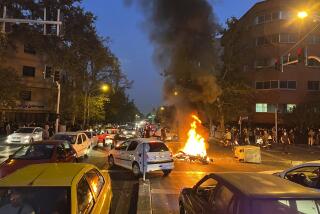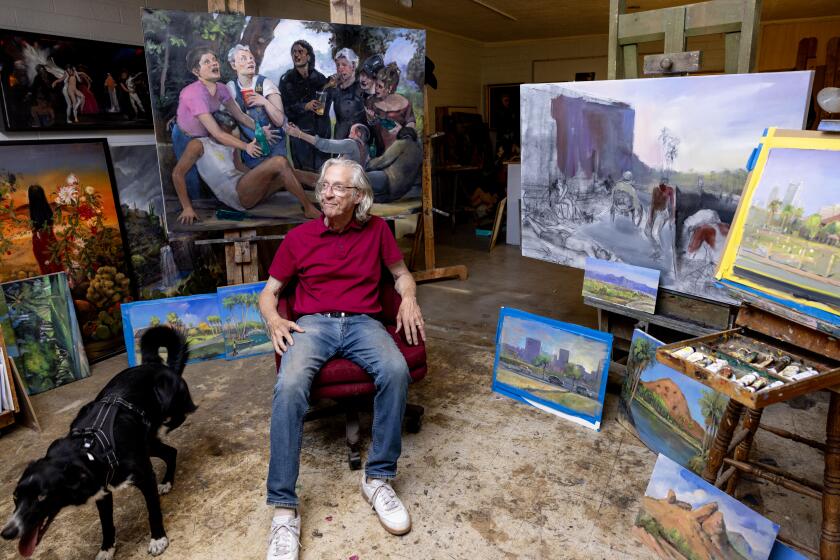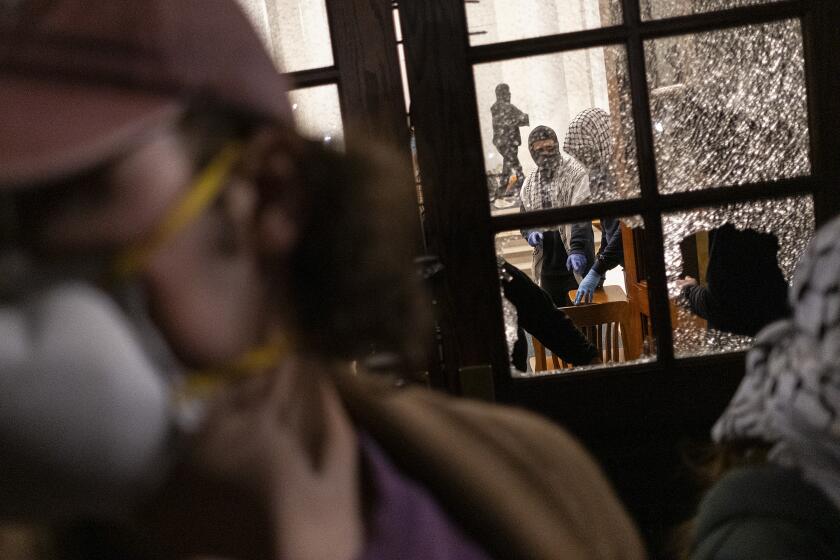At least 7 killed in Beirut melee
At least seven civilians were killed Sunday evening during an hours-long clash between Lebanese soldiers and young Shiite Muslim men protesting electricity cuts, security officials said.
A dozen or more other people were wounded in the melee when gunfire erupted as demonstrators were throwing rocks and fireworks at a phalanx of troops. Several residents in an adjacent Christian neighborhood were injured later by a hand-grenade explosion, Lebanese television reported.
The violence came two days after a massive car bomb killed one of the country’s top intelligence officials and 12 days after another explosion struck a U.S. Embassy convoy, killing three civilians. Prime Minister Fouad Siniora declared today a day of national mourning and ordered universities and schools closed.
“In these moments, our country is passing through its most difficult and dangerous times,” he said.
The violence was the latest sign of deteriorating security in a country that has been paralyzed by a political standoff between two camps, one favoring the West and the other backed by Iran and Syria, over the formation of a new government.
The melee erupted near the southern Beirut neighborhood of Ein Rummaneh, site of a 1975 massacre of Palestinians that helped spark a 15-year civil war in Lebanon.
Arab foreign ministers met in Cairo on Sunday with representatives of the two Lebanese camps and called on them to end their deadlock, which has set the volatile, religiously and politically divided country perilously adrift. The ministers urged both sides to back Gen. Michel Suleiman, a Christian, as president when parliament convenes Feb. 11.
Hundreds of demonstrators, some wearing ski masks, gathered in the streets of the southern Beirut suburb of Dahiya to protest power cuts. They said the disruption leaves them with only about six hours of electricity a day, compared with 21 hours for parts of central Beirut.
Shouting slogans and hurling epithets against Siniora’s U.S.-backed government, they raced around the streets on motor scooters; set tires ablaze; and tried to block roads, including the route to the airport.
“In south Beirut, people have interests and lives too,” said Suleiman, a 19-year-old demonstrator who declined to give his last name. “We have jobs and work to do, and without electricity we can’t do anything.”
An official of the Amal party, a Shiite political group, was killed in an unexplained volley of gunfire. The angry crowds swelled. They tossed tires and explosives into a bonfire, set cars alight and showered security forces with rocks.
Gunfire again erupted. One victim in his late teens fell to the ground, choking as he lay in a pool of blood. Ambulances waiting at the scene rushed in to take him and other wounded people to a nearby hospital.
It remained unclear whether the victims were struck by gunfire from troops. In a statement, the army said it had launched an investigation to determine the identity of the shooters.
Many of the demonstrators said they were loyal to Amal, one of the groups in the camp led by the Shiite militia Hezbollah and backed by Iran and Syria. The official Lebanese news agency also reported violent demonstrations in the country’s mostly Shiite south. But Amal disavowed the Beirut demonstrations and called on protesters to clear the streets.
The pro-government Future bloc led by pro-American politician Saad Hariri blamed Damascus and Tehran for the incident.
“The forces of the Syrian and Iranian front are causing the situation to explode and provoking dangerous riots,” the bloc said in a statement.
--
Daragahi is a Times staff writer and Rafei a special correspondent.
More to Read
Start your day right
Sign up for Essential California for news, features and recommendations from the L.A. Times and beyond in your inbox six days a week.
You may occasionally receive promotional content from the Los Angeles Times.






